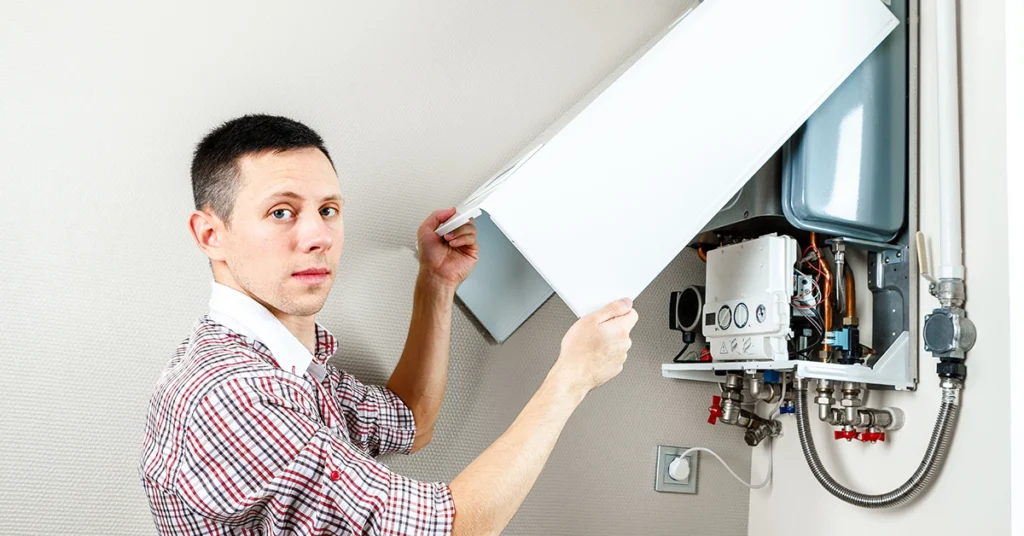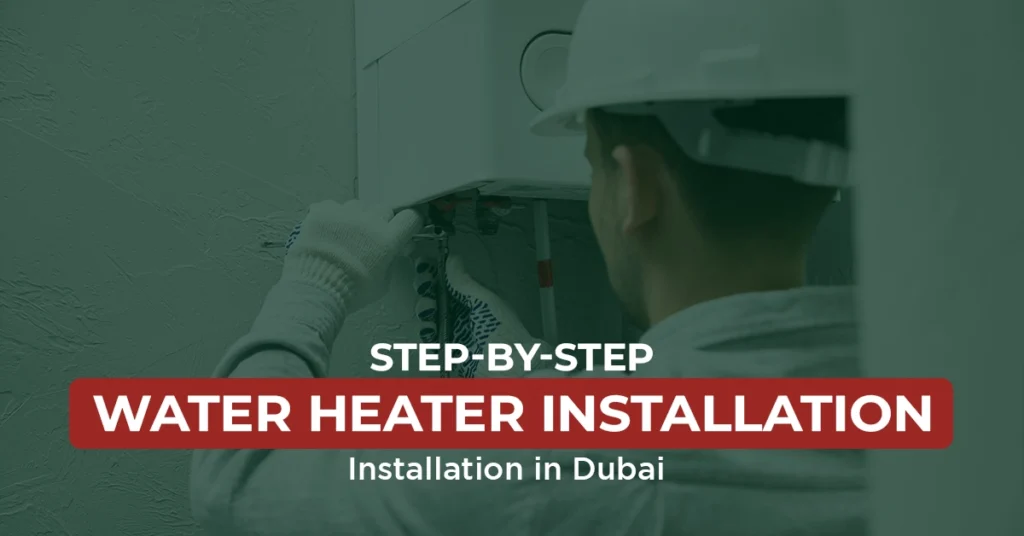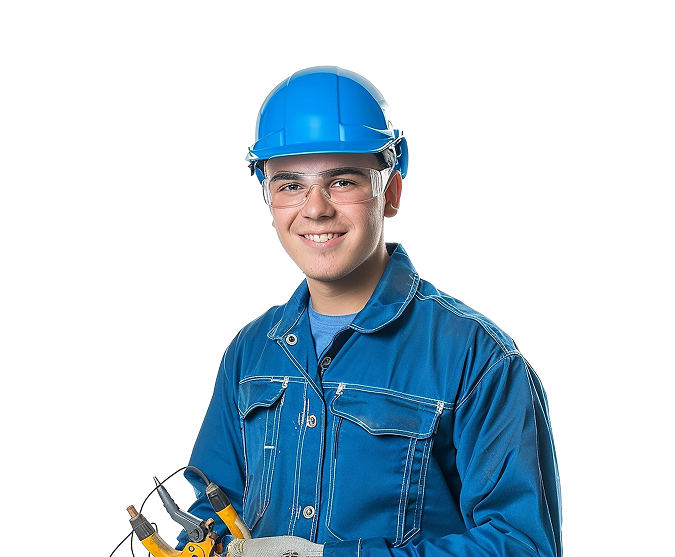Installing a water heater in your Dubai home might seem straightforward, but there’s more to it than just mounting a unit and turning it on. From choosing the right type of heater to following local safety codes, each step requires careful attention. This guide will walk you through the entire process of water heater installation in Dubai, covering everything from electrical connections to plumbing alignment, ensuring your setup is safe, efficient, and built to last.
Whether you’re installing a new water heater in an apartment or upgrading an older unit in a villa, this tutorial offers practical knowledge that matches both UAE climate conditions and local building standards.
Why a Proper Water Heater Setup Matters in Dubai
Dubai’s hot weather may reduce the need for heating water in some months, but a reliable water heater remains essential for early mornings, winter showers, and consistent supply across multiple bathrooms. Poor installation can lead to electrical hazards, water leaks, and frequent maintenance problems. A professionally set up heater saves energy, reduces utility bills, and ensures comfort throughout the year.
Types of Water Heaters Commonly Used in Dubai
Electric Storage Heaters
Typically mounted on walls in bathrooms or laundry areas.
Instant Heaters
Provide hot water on demand, best for smaller households or where space is limited.
Gas Water Heaters
Less common but used in some villas and older constructions.
Most homes in Dubai prefer electric storage or instant water heaters due to safety and space efficiency.
Preparing for Installation
Choose the Right Water Heater Size
Size depends on the number of bathrooms and users. A 30-liter unit suits a single person or small bathroom, while a 100-liter unit is better for families. Oversized heaters waste energy, while undersized ones fail to meet demand.
Check Power Supply and Wall Structure
Ensure you have a dedicated 13-amp power supply. For electric heaters, the wiring must be heat-resistant and comply with DEWA codes. Mounting walls should be solid enough to support the heater’s full weight when filled with water.
Step-by-Step Electric Water Heater Installation in Dubai
Step 1: Mark Mounting Points
Use a measuring tape to mark the exact height on the wall. Avoid placing the heater too high or too close to ceilings. The mounting bracket should be drilled into concrete or block walls, not drywall.
Step 2: Drill and Secure Brackets
Use a hammer drill and wall plugs rated for heavy loads. Once the bracket is secure, lift and position the heater unit with support from another person. Ensure the unit is level.
Step 3: Connect Inlet and Outlet Pipes
Dubai uses color-coded connectors: red for hot, blue for cold. Fit braided hoses and apply PTFE tape to all threads to prevent leaks. Tighten connections firmly but avoid overtightening.
Step 4: Install Pressure Relief Valve
This valve is critical for safety and must be connected to a drain line. In Dubai, building codes often require routing the relief pipe to a floor drain or outdoor area.
Step 5: Complete Electrical Wiring
Ensure the unit is off before connecting to the circuit. Follow the manufacturer’s guide and use heat-resistant cables. Use a waterproof junction box. If unsure, always hire a licensed electrician.
Step 6: Fill and Test
Open the cold water valve and allow the tank to fill. Open a hot tap to release trapped air. Once full, switch on the breaker and set the thermostat to 50–55°C for safety and energy efficiency.
Best Practices and Safety Tips for UAE Homes

Avoid Installing Over Fragile Surfaces
Never install the heater above drywalls or lightweight panels. Always use masonry or concrete walls. Wall strength checks are essential.
Secure Pipe Insulation
In Dubai’s heat, uninsulated pipes waste energy. Use foam pipe covers to retain water temperature and improve efficiency.
Use a Drip Tray
Install a metal drip tray beneath the heater, connected to a floor drain. This protects flooring from leaks and is often required in newer apartment complexes.
Local Regulations and Common Errors
Dubai follows strict plumbing codes. Avoid these common installation mistakes:
- Connecting water pipes in reverse (hot to cold, cold to hot)
- Skipping the pressure relief valve
- Mounting too close to ceilings, making maintenance difficult
- Using undersized wall plugs or screws
To ensure your setup meets safety standards, consider professional help. Our team provides reliable Water heater installation in Dubai tailored to your home’s exact needs.
Final Thoughts
Water heater installation in Dubai is a critical task that blends safety, energy efficiency, and everyday comfort. Whether you live in an apartment in Bur Dubai or a villa in Arabian Ranches, correct setup ensures you have reliable hot water whenever you need it. If you’re unsure about anything, from wiring to pipe fitting, it’s always smart to call in a pro.
For hassle-free and code-compliant setup, trust our expert team to handle your water heater needs with care and precision.
FAQs
Can I install a water heater by myself in Dubai?
If you have electrical and plumbing experience, yes. However, local compliance and safety standards make professional installation highly recommended.
What tools do I need to install a water heater?
Hammer drill, wall plugs, PTFE tape, adjustable wrench, voltage tester, and insulation sleeves for pipes.
How much does it cost to install a water heater in Dubai?
Prices start around AED 250 for basic setups and go higher based on complexity and materials.
Do I need a plumber for water heater installation in UAE?
Yes, especially for connecting to existing plumbing lines, checking drainage, and securing fittings.
How to mount a water heater safely on the wall?
Use concrete screws, solid anchors, and check the load-bearing capacity of the wall.
Which water heater is best for Dubai homes?
Electric storage heaters are the most common. Brands like Ariston, Atlantic, and Super General are popular in the UAE.
How long does water heater installation take?
Roughly 2–3 hours for a standard installation if no plumbing changes are needed.
Can I install an instant water heater in my bathroom?
Yes, but ensure your electrical load capacity supports it and water pressure is within the recommended range.


